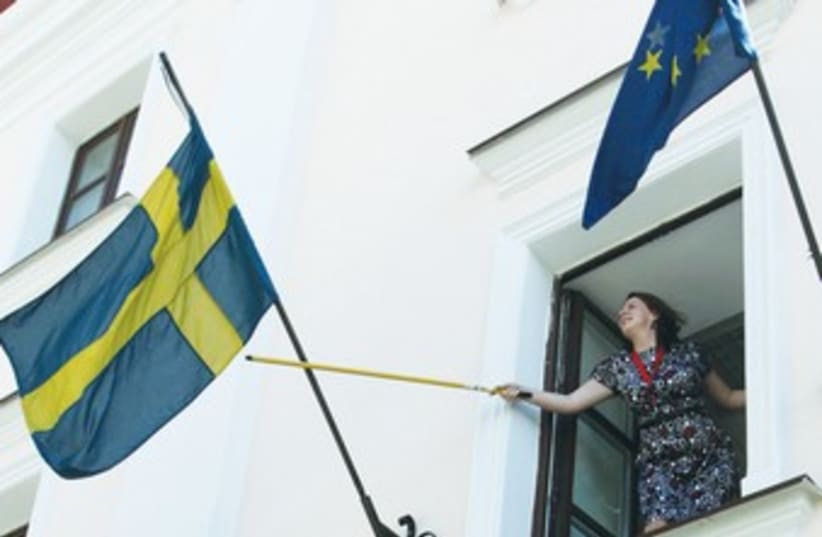The letter took me aback, and with a mix of curiosity and admiration I decided to take the man up on his offer of a chat. A pleasant voice met me on the other line as I declared I had received his letter, and I think he was as surprised to receive my call as I had been by his unusual priestly PR.
- So how come you’re not a member?
- I am a Jew.
- Are you religious?
- Yes, Sir.
- Oh, how wonderful. That means I have more in common with you than with most of the people in this country.
That short exchange was the start of an inspiring conversation - because he got it. He felt what I feel, all too often. The loneliness and isolation of being a religious person in a country where faith and observance is one of few remaining taboos. My life revolves around my religion. From what I do in the morning, to what I eat and how I conduct myself in the outside world. It is who I am; it is what I do and how I choose to do it. It is a deeply rewarding and thoroughly exhausting life, at least in the Diaspora. It means having to explain things that are beyond explanation and making excuses although you know in your heart you shouldn't have to.
I remember being at work one day and having lunch with my colleagues in the cafeteria. As it was Thursday everyone was discussing his or her weekend plans and when it came to me I explained I was going to spend Shabbat with some friends. This prompted questions, and I took on the task of explaining what Shabbat is and how it is kept. It was all well and good at first, and everyone seemed to really like the idea of homemade challot and family time. But then, somewhere around the pre-ripping toilet paper part of my educational saga, people started looking at me funny.
I told a good friend about this after work and he just sighed and said "C’mon Annika, never ever tell the Swedes about the toilet paper! You know this! They all think we are crazy anyway; you need to learn to stick with the cute stuff."
And he is right, you know. It is socially acceptable, and even encouraged, to say that you are “spiritual”. That means you are open to crystals and spirits and going to India in your late teens. Spiritual means you are sensual and fun and adventurous. But tell any given Swede that you put a piece of tape on your refrigerator light every Friday and you’ll be eating your lunch alone for the foreseeable future. Trust me on that one.
I am not saying that more people should be religious, because I do not have any inclination for missionary work; but I do think that in such a self-proclaimed liberal haven as Sweden, one should have the option not to be liberal at all. Diversity is more than a colorful pamphlet and a state-funded seminar. Diversity is everyday life and the practical solutions that come with it; like flexible holiday scheduling and food-options and political bravery in cowardly times. Do you want a diverse country? Really? Then make sure that it is possible to live a religious life, and not just the cute stuff, either.
But it is not just about them, not just about society or the government or even your boss. It’s just as much about us. Me and you. In order to have our rights respected and upheld we must cling to them and demand them, without excuses or roundabout ways. The more open we are as Jews the more we become a force, something undeniable that has to be acknowledged. And yes, I know it is a lot of work, laying out all the vacation days and explaining your kashrut or telling your boss you’ll come in late because they are one short for a minyan at shul. But if you do, you become a proud ambassador and a teacher of others. You are a link in the chain and a protector of freedoms not only for you, but also for all of us. You will never get what you do not ask for, but if you never claim it they will rob you blind.
As I spoke to that priest I found solace in the solidarity among believers, and many times since that conversation I have wished to see more of it. A pact among outsiders, if you will, vowing to save a seat at the table with our weird home-made lunchboxes as well as banner on the barricades when the going gets tough. An alliance for the right to be different. Integration, but never assimilation.
So if you’re also one of the others, please sit with me and share a conversation. We can swap stories on how grueling the fast is or what subway to take to that store with the good rice. Who knows, maybe we can be lunch-buddies? And don’t even worry about what to serve me. I’ll be bringing my own.
Annika Hernroth-Rothstein is a political adviser, writer and activist. An alumni of the Young Jewish diplomatic seminar (organized by the Mizrad Hahutz) and Tikvah seminars in NYC. She lives in Stockholm, Sweden, with her two children. Follow her on Twitter.
